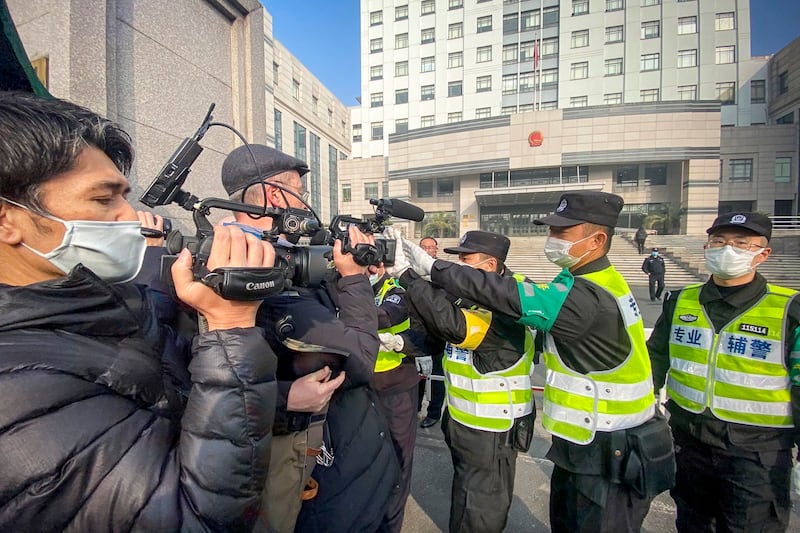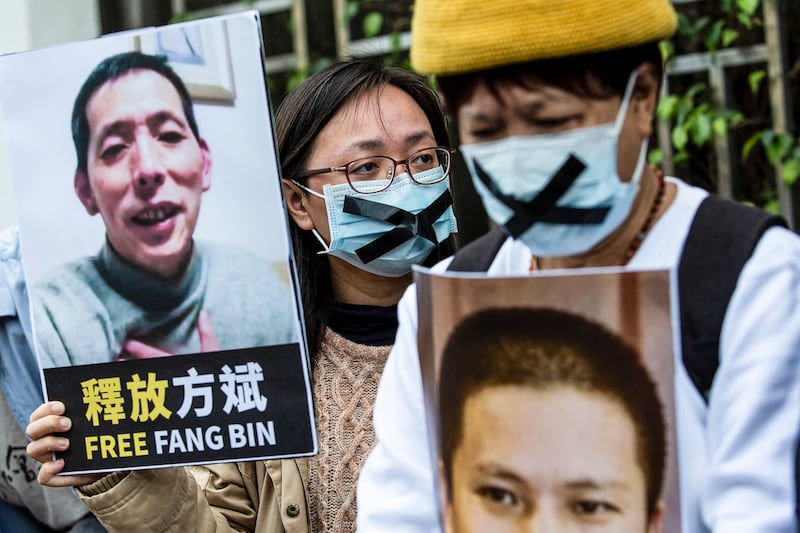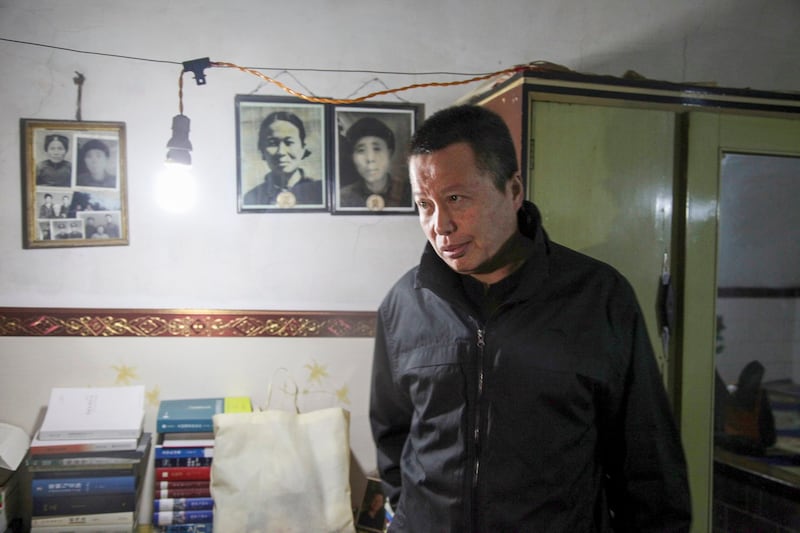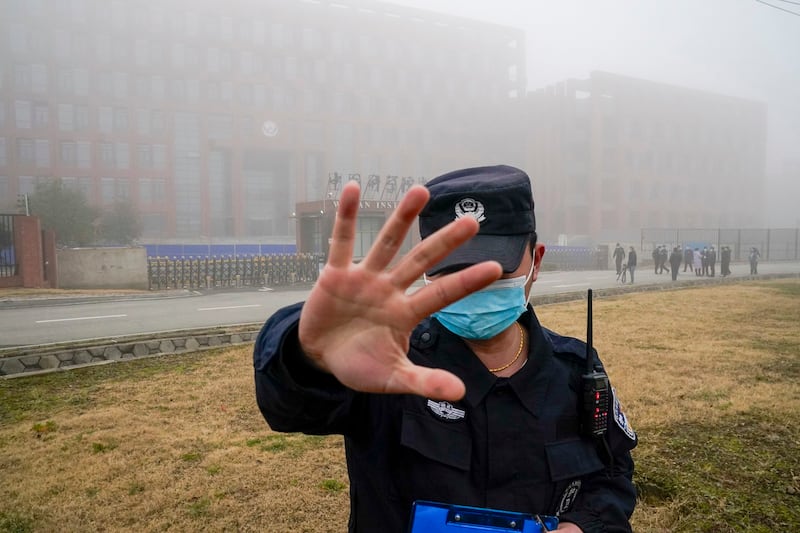Chinese citizen journalist Zhang Zhan on Sunday completed a jail term handed down for reporting from the front lines of the emerging COVID-19 pandemic in Wuhan, but fellow activists said her whereabouts remained unclear, and that she was likely still under some form of restriction."
Zhang, 40, was sentenced to four years' imprisonment by Shanghai's Pudong District People's Court on Dec. 28, 2020, convicted of "picking quarrels and stirring up trouble," a charge frequently used to target critics of the ruling Chinese Communist Party.
She was hospitalized last year for digestive diseases linked to malnutrition following several months of hunger strikes.
Zhang, a former lawyer, had pleaded not guilty. A guilty plea is typically a prerequisite for more lenient treatment in China's judicial system.

But while her formal prison sentence ended on May 12, activists said Zhang is highly unlikely to be seen in public any time soon, as police warned and threatened her supporters not to try to meet with her.
"Just as they did with citizen journalist Fang Bin, [the authorities] definitely won't be allowing Zhang Zhan to show her face," supporter Liu Hua told RFA Mandarin. "That scares them half to death. They will make her disappear."
Ground Zero
For many people in 2020, the news that the central Chinese city of Wuhan had been placed under lockdown was the first indication that something was profoundly wrong, and that the emerging pandemic could have a global impact.
On Jan. 23, 2020, the provincial authorities imposed a travel ban on some 18 million people in Wuhan and surrounding areas, prompting a mass rush to leave the city. Three days later, they admitted that the newly emerging coronavirus was transmissible between people, something experts elsewhere had suspected for weeks.
The notice plunged the city into a whirlwind of compulsory daily testing, enforced quarantine in rapidly constructed mass facilities, amid a desperate struggle to seek medical treatment as hospitals in the city were overwhelmed, and crematoriums started operating around the clock.
In the weeks and months that followed, citizen journalists were among the few who traveled in the opposite direction, diving into the chaos to bring news of what was happening to people outside China.

As the virus spread globally and political heads rolled, the government tried to claw back control of the narrative by suppressing whistleblowing doctors like Li Wenliang and Ai Fen.
Then, police started rounding up frontline bloggers, archivists, diarists, YouTubers, livestreamers and other citizen journalists, including Zhang Zhan.
Fears she will just disappear
Liu said there are concerns that Zhang -- whose case is considered high profile by the Communist Party -- could disappear, like former rights lawyer Gao Zhisheng, whose family say they aren't even sure if he's still alive.
Police are also moving to clamp down on any public show of support for Zhang, according to Shanghai petitioner Shen Yanqiu, who was hauled in to “drink tea’ – questioning – by state security police and warned off trying to meet her at the Shanghai Women's Prison on the day of her scheduled release.

"I went to drink tea ... and the heads of the Communist Party Legal and Political Affairs Committees for the municipality and the district, as well as the municipal chief of police ... put pressure on our local police station to watch my movements, and to warn me not to go to the women's prison," Shen told RFA Mandarin.
"They told me that the Zhang Zhan case is [being watched] at a high level [of government], and that they hope I won't get involved," she said.
Shen said fellow rights activist Jia Lingmin had received a similar warning from his local police as he tried to board a train in the central city of Zhengzhou at 10.00 p.m. on May 11.
"He was persuaded to go home by officers from the local police station," she said.
Repeated calls to Zhang's mother and brother rang unanswered on Monday.
Beijing rights activist Lu Jun, who now lives in New York, said the reporting by citizen journalists from the front lines of the emerging COVID-19 pandemic in Wuhan had endangered attempts by the authorities to "cover up" what was happening there.

"The authorities went to great lengths to cover up the COVID-19 epidemic," Lu said. "[Zhang Zhan's] actions were intolerable to them, and she was quickly arrested after entering Wuhan and handed a harsh sentence."
"[Anyone] entering Wuhan at that time to seek justice for victims or to expose the truth was taking huge risks," he said.
He said Zhang's family is likely unable to speak out on her behalf, as they themselves are likely being threatened.
Translated by Luisetta Mudie. Edited by Malcolm Foster.
